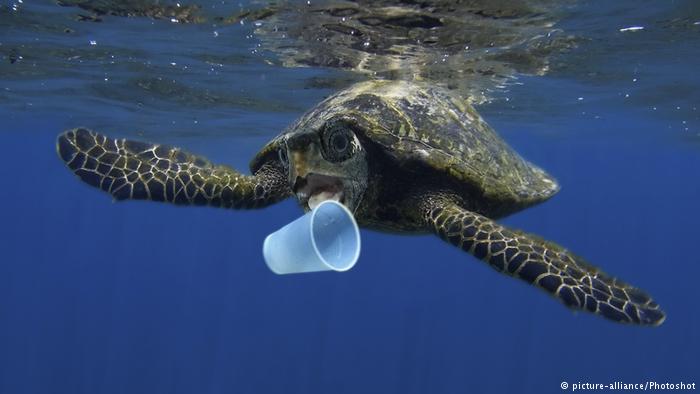A Planet Full of Plastic
April 1, 2019
The use of plastic has become an everyday occurrence for most people in America and around the world. Plastic production has increased by 44% since 2000. In 2015, 448 million tons of plastic was produced. Americans use about, on average, one plastic bag per day. In 2015, Americans purchased about 346 plastic bottles per person. People are using such high amounts of plastic, but not even a fifth of the said plastic is recycled globally. Americans only recycle about 9% of their plastic waste.
About 18 billion pounds of plastic goes into oceans every year. If you visit a beach, you are more than likely to find plastic garbage littered all along the coast. The once beautiful oceans are now filled with garbage. Our waterways are becoming completely polluted. The way pollution is going now, plastic is predicted to outweigh fish populations by 2050. Our oceans are turning into a garbage can.
The use of plastic makes life easier for humans, but not for marine animals and their homes. Marine animals are showing up dead on coastlines with bellies full of plastic waste. The United Nations Educational, Scientific, and Cultural Organization, UNESCO, estimates about 100,000 marine animals die, each year, because of plastic pollution. Whales are dying at alarming rates because of the ingestion of plastic. Scientists are afraid they’re going to lose whales before the whales evolve to learn not to eat the plastic. It’s not fair for people to pollute sea creatures’ home with a product that’s not necessary for human survival. Although plastic isn’t necessary for human survival, it has a direct impact on marine organisms survival.
America tends to take a different stance on what to do with plastic pollution than a lot of other countries. Americans want to focus on waste management instead of the removal of plastic production. If you care about stopping the extreme amount of plastic pollution around the globe, reach out to your representatives and local politicians. Also, educate yourself and others about alternatives to plastic and how to stop polluting our water. Even if you still use plastic, cutting down some of your usage of plastic helps a lot. It’s very important to recycle, too. We only have one planet.
Sources:
https://news.nationalgeographic.com/2018/05/plastics-facts-infographics-ocean-pollution/
https://www.nationalgeographic.com/environment/2019/03/whale-dies-88-pounds-plastic-philippines/




